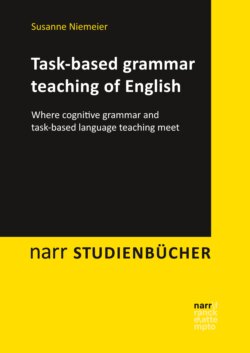Читать книгу Task-based grammar teaching of English - Susanne Niemeier - Страница 27
На сайте Литреса книга снята с продажи.
3.2 The cognitive grammar perspective on language
ОглавлениеMuch that was said in the previous sub-chapter has already alluded to cognitive grammar beliefs and principles, as cognitive grammar is a prominent field of research within cognitive linguistics and therefore shares its basic assumptions, which were outlined in the previous sub-chapter. Cognitive grammar is not a completely uniform approach1, however, what all current frameworks have in common is that they treat language as an integral facet of cognition and regard grammatical phenomena as meaningful. They are not as concretely meaningful as lexical structures are, but they are meaningful in a more abstract way. LANGACKER (2008: 67) calls this “a matter of degree, so there is no clear line between lexicon and grammar”. Cognitive grammar aims at investigating “the ways in which people structure their experiences through language” (NIEMEIER 2013: 11), “based on the assumption that situations are generally not reflected directly in linguistic forms but by means of elaborate cognitive construals” (ibid.).
